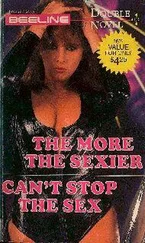Which is just what a woman named Rosa Parks did naturally.
* * *
For years before the day in December 1955 when Rosa Parks refused to give up her seat on a Montgomery bus, she worked behind the scenes for the NAACP, even receiving training in nonviolent resistance. Many things had inspired her political commitment. The time the Ku Klux Klan marched in front of her childhood house. The time her brother, a private in the U.S. Army who’d saved the lives of white soldiers, came home from World War II only to be spat upon. The time a black eighteen-year-old delivery boy was framed for rape and sent to the electric chair. Parks organized NAACP records, kept track of membership payments, read to little kids in her neighborhood. She was diligent and honorable, but no one thought of her as a leader. Parks, it seemed, was more of a foot soldier.
Not many people know that twelve years before her showdown with the Montgomery bus driver, she’d had another encounter with the same man, possibly on the very same bus. It was a November afternoon in 1943, and Parks had entered through the front door of the bus because the back was too crowded. The driver, a well-known bigot named James Blake, told her to use the rear and started to push her off the bus. Parks asked him not to touch her. She would leave on her own, she said quietly. “Get off my bus,” Blake sputtered in response.
Parks complied, but not before deliberately dropping her purse on her way out and sitting on a “white” seat as she picked it up. “Intuitively, she had engaged in an act of passive resistance, a precept named by Leo Tolstoy and embraced by Mahatma Gandhi,” writes the historian Douglas Brinkley in a wonderful biography of Parks. It was more than a decade before King popularized the idea of nonviolence and long before Parks’s own training in civil disobedience, but, Brinkley writes, “such principles were a perfect match for her own personality.”
Parks was so disgusted by Blake that she refused to ride his bus for the next twelve years. On the day she finally did, the day that turned her into the “Mother of the Civil Rights Movement,” she got back on that bus, according to Brinkley, only out of sheer absentmindedness.
Parks’s actions that day were brave and singular, but it was in the legal fallout that her quiet strength truly shone. Local civil rights leaders sought her out as a test case to challenge the city’s bus laws, pressing her to file a lawsuit. This was no small decision. Parks had a sickly mother who depended on her; to sue would mean losing her job and her husband’s. It would mean running the very real risk of being lynched from “the tallest telephone pole in town,” as her husband and mother put it. “Rosa, the white folks will kill you,” pleaded her husband. “It was one thing to be arrested for an isolated bus incident,” writes Brinkley; “it was quite another, as historian Taylor Branch would put it, to ‘reenter that forbidden zone by choice.’ ”
But because of her nature, Parks was the perfect plaintiff. Not only because she was a devout Christian, not only because she was an upstanding citizen, but also because she was gentle. “They’ve messed with the wrong one now!” the boycotters would declare as they traipsed miles to work and school. The phrase became a rallying cry. Its power lay in how paradoxical it was. Usually such a phrase implies that you’ve messed with a local heavy, with some bullying giant. But it was Parks’s quiet strength that made her unassailable. “The slogan served as a reminder that the woman who had inspired the boycott was the sort of soft-spoken martyr God would not abandon,” writes Brinkley.
Parks took her time coming to a decision, but ultimately agreed to sue. She also lent her presence at a rally held on the evening of her trial, the night when a young Martin Luther King Jr., the head of the brand-new Montgomery Improvement Association, roused all of Montgomery’s black community to boycott the buses. “Since it had to happen,” King told the crowd, “I’m happy it happened to a person like Rosa Parks, for nobody can doubt the boundless outreach of her integrity. Nobody can doubt the height of her character. Mrs. Parks is unassuming, and yet there is integrity and character there.”
Later that year Parks agreed to go on a fund-raising speaking tour with King and other civil rights leaders. She suffered insomnia, ulcers, and homesickness along the way. She met her idol, Eleanor Roosevelt, who wrote of their encounter in her newspaper column: “She is a very quiet, gentle person and it is difficult to imagine how she ever could take such a positive and independent stand.” When the boycott finally ended, over a year later, the buses integrated by decree of the Supreme Court, Parks was overlooked by the press. The New York Times ran two front-page stories that celebrated King but didn’t mention her. Other papers photographed the boycott leaders sitting in front of buses, but Parks was not invited to sit for these pictures. She didn’t mind. On the day the buses were integrated, she preferred to stay home and take care of her mother.
* * *
Parks’s story is a vivid reminder that we have been graced with limelight-avoiding leaders throughout history. Moses, for example, was not, according to some interpretations of his story, the brash, talkative type who would organize road trips and hold forth in a classroom at Harvard Business School. On the contrary, by today’s standards he was dreadfully timid. He spoke with a stutter and considered himself inarticulate. The book of Numbers describes him as “very meek, above all the men which were upon the face of the earth.”
When God first appeared to him in the form of a burning bush, Moses was employed as a shepherd by his father-in-law; he wasn’t even ambitious enough to own his own sheep. And when God revealed to Moses his role as liberator of the Jews, did Moses leap at the opportunity? Send someone else to do it, he said. “Who am I, that I should go to Pharaoh?” he pleaded. “I have never been eloquent. I am slow of speech and tongue.”
It was only when God paired him up with his extroverted brother Aaron that Moses agreed to take on the assignment. Moses would be the speechwriter, the behind-the-scenes guy, the Cyrano de Bergerac; Aaron would be the public face of the operation. “It will be as if he were your mouth,” said God, “and as if you were God to him.”
Complemented by Aaron, Moses led the Jews from Egypt, provided for them in the desert for the next forty years, and brought the Ten Commandments down from Mount Sinai. And he did all this using strengths that are classically associated with introversion: climbing a mountain in search of wisdom and writing down carefully, on two stone tablets, everything he learned there.
We tend to write Moses’ true personality out of the Exodus story. (Cecil B. DeMille’s classic, The Ten Commandments , portrays him as a swashbuckling figure who does all the talking, with no help from Aaron.) We don’t ask why God chose as his prophet a stutterer with a public speaking phobia. But we should. The book of Exodus is short on explication, but its stories suggest that introversion plays yin to the yang of extroversion; that the medium is not always the message; and that people followed Moses because his words were thoughtful, not because he spoke them well.
* * *
If Parks spoke through her actions, and if Moses spoke through his brother Aaron, today another type of introverted leader speaks using the Internet.
In his book The Tipping Point , Malcolm Gladwell explores the influence of “Connectors”—people who have a “special gift for bringing the world together” and “an instinctive and natural gift for making social connections.” He describes a “classic Connector” named Roger Horchow, a charming and successful businessman and backer of Broadway hits such as Les Misérables , who “collects people the same way others collect stamps.” “If you sat next to Roger Horchow on a plane ride across the Atlantic,” writes Gladwell, “he would start talking as the plane taxied to the runway, you would be laughing by the time the seatbelt sign was turned off, and when you landed at the other end you’d wonder where the time went.”
Читать дальше
![Сьюзан Кейн Quiet [The Power of Introverts in a World That Can't Stop Talking] обложка книги](/books/33084/syuzan-kejn-quiet-the-power-of-introverts-in-a-wo-cover.webp)











